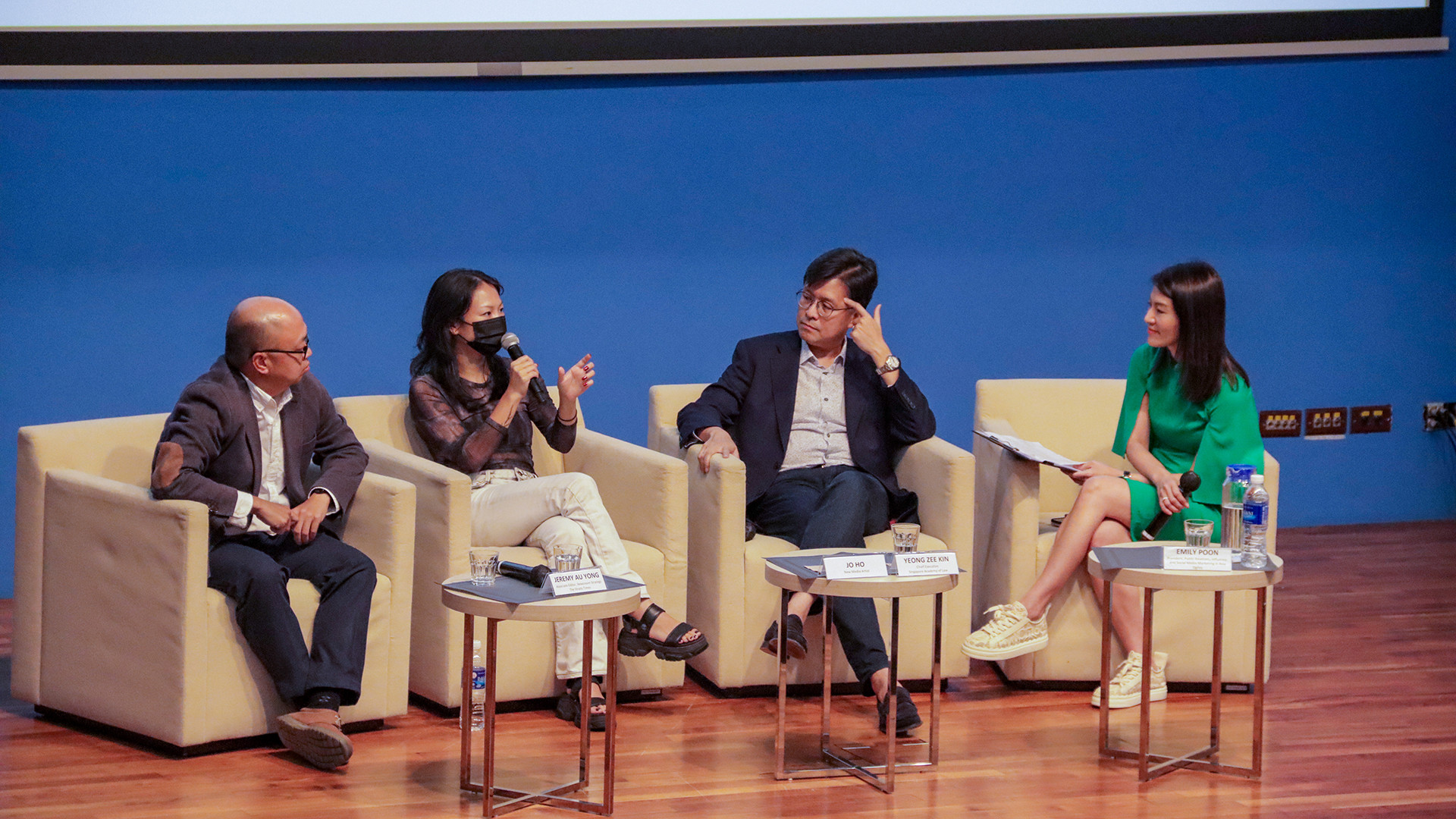
|
Getting your Trinity Audio player ready...
|
Held under the auspices of the Department of Communications and New Media at the NUS Faculty of Arts and Social Sciences, the CNM Leaders Summit, “AIxMedia: How AI is Reshaping the Media Landscape”, convened a diverse array of professionals from various sectors within the media industry. This platform serves as a venue for sharing insights and perspectives on the transformative impact of AI on media dynamics.

One prevailing theme that emerged was the profound influence of AI on content creation, distribution, and consumption. Panellists, drawn from fields as disparate as journalism, advertising, art, and law, echoed sentiments of cautious optimism tempered by an awareness of the challenges posed by AI integration into media workflows.
Professor Simon Chesterman, NUS College Dean and NUS Vice Provost (Educational Innovation), underscored the economic implications of AI-driven content generation. He noted the remarkable trend toward zero production costs facilitated by generative AI, allowing for the mass creation of content accessible to a global audience at unprecedented scales. This shift, while economically empowering, presents significant challenges to media practitioners and organisations grappling with the evolving landscape of content automation.
The President of Public Relations, Influence, and Social Media Marketing at an advertising agency, shared compelling anecdotes illustrating AI’s transformative role in accelerating advertising workflows. She highlighted instances where generative AI platforms enabled her team to expedite the ideation process, generating diverse concepts and mood boards within minutes – a feat that previously required days of manual labour. Such advancements underscore AI’s potential to streamline creative processes and drive innovation within the advertising industry.
AI’s impact on artistic expression and pedagogy was also explored. A visual artist recounted her journey of leveraging AI technologies to push the boundaries of her creative practice. Trained initially in architecture, Ho found inspiration in AI’s ability to generate digital artworks from existing images, leading to the development of her innovative collection.
Furthermore, as a lecturer at a prominent arts college, she shared her experiences incorporating AI tools into her teaching methodologies, citing examples where AI-driven solutions enhanced student learning outcomes and fostered creative exploration.
However, amidst the optimism surrounding AI’s potential, panellists also acknowledged the challenges and ethical considerations inherent in AI-driven media production. One notable concern is the commodification of AI-generated content, which poses existential threats to traditional media business models reliant on advertising revenue.
As Professor Chesterman noted, the bifurcation of the news media landscape reflects this tension, with established publications struggling to monetise content in an era of rampant content proliferation.
Moreover, legal and ethical dilemmas surrounding AI-generated works were a focal point of discussion. The Chief Executive of a prominent legal institution emphasised the importance of clarifying copyright ownership in AI-generated content – a matter exacerbated by ongoing legal disputes and regulatory uncertainties. Despite these challenges, panellists expressed confidence in the potential for AI to augment, rather than replace, human creativity and ingenuity.
Indeed, the Associate Editor at a leading media outlet, aptly articulated AI’s integration into media workflows necessitates a reevaluation of the profession’s core competencies. While AI may streamline certain tasks, critical thinking, analysis, and human intuition remain indispensable assets in navigating the complexities of modern media landscapes.
The forum offered nuanced insights on the intersection of AI and media. By fostering dialogue among diverse stakeholders, it facilitated a deeper understanding of AI’s transformative potential and the challenges inherent in its adoption. As media professionals navigate this evolving landscape, a commitment to ethical practice, innovation, and lifelong learning will be paramount in harnessing AI’s promise to reshape the future of media.
















